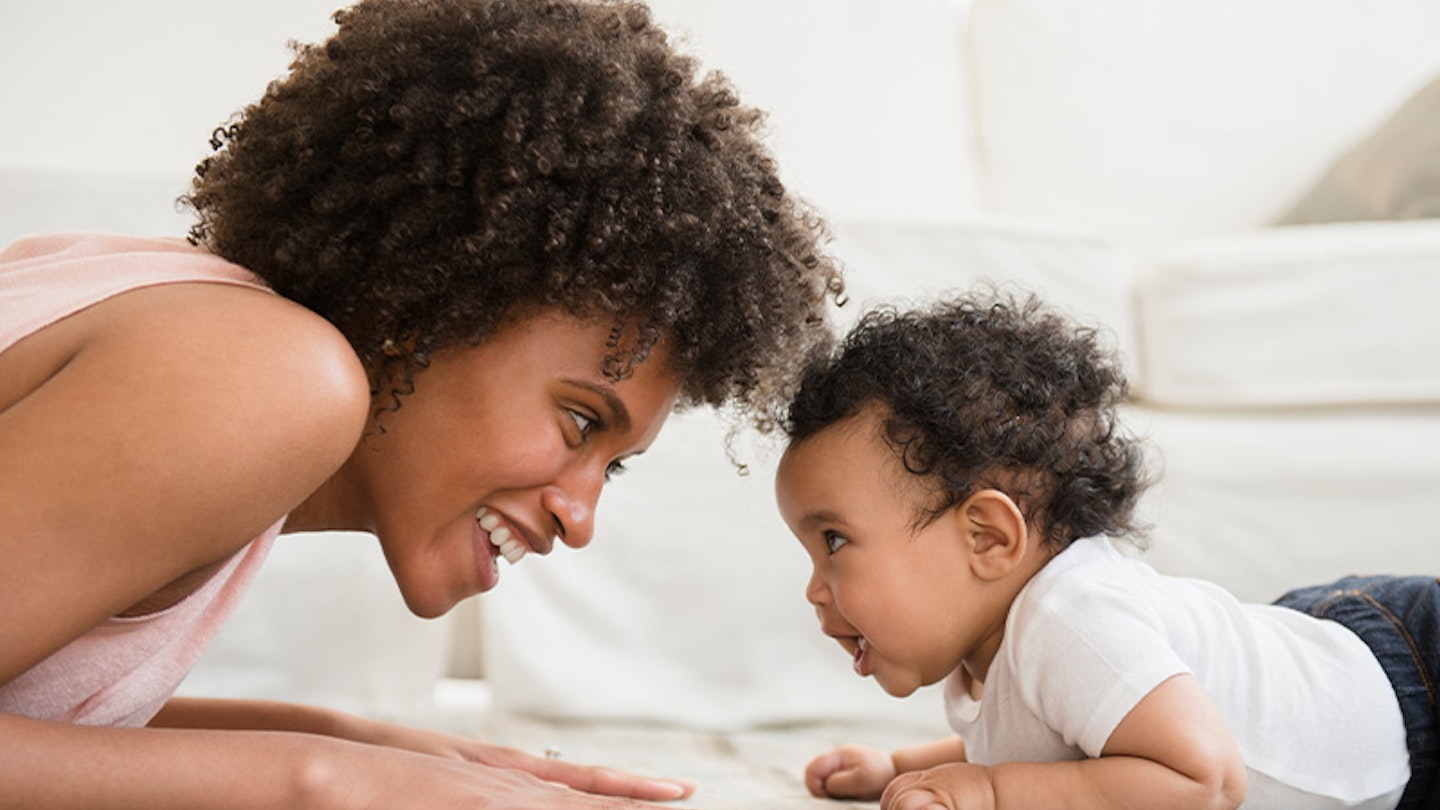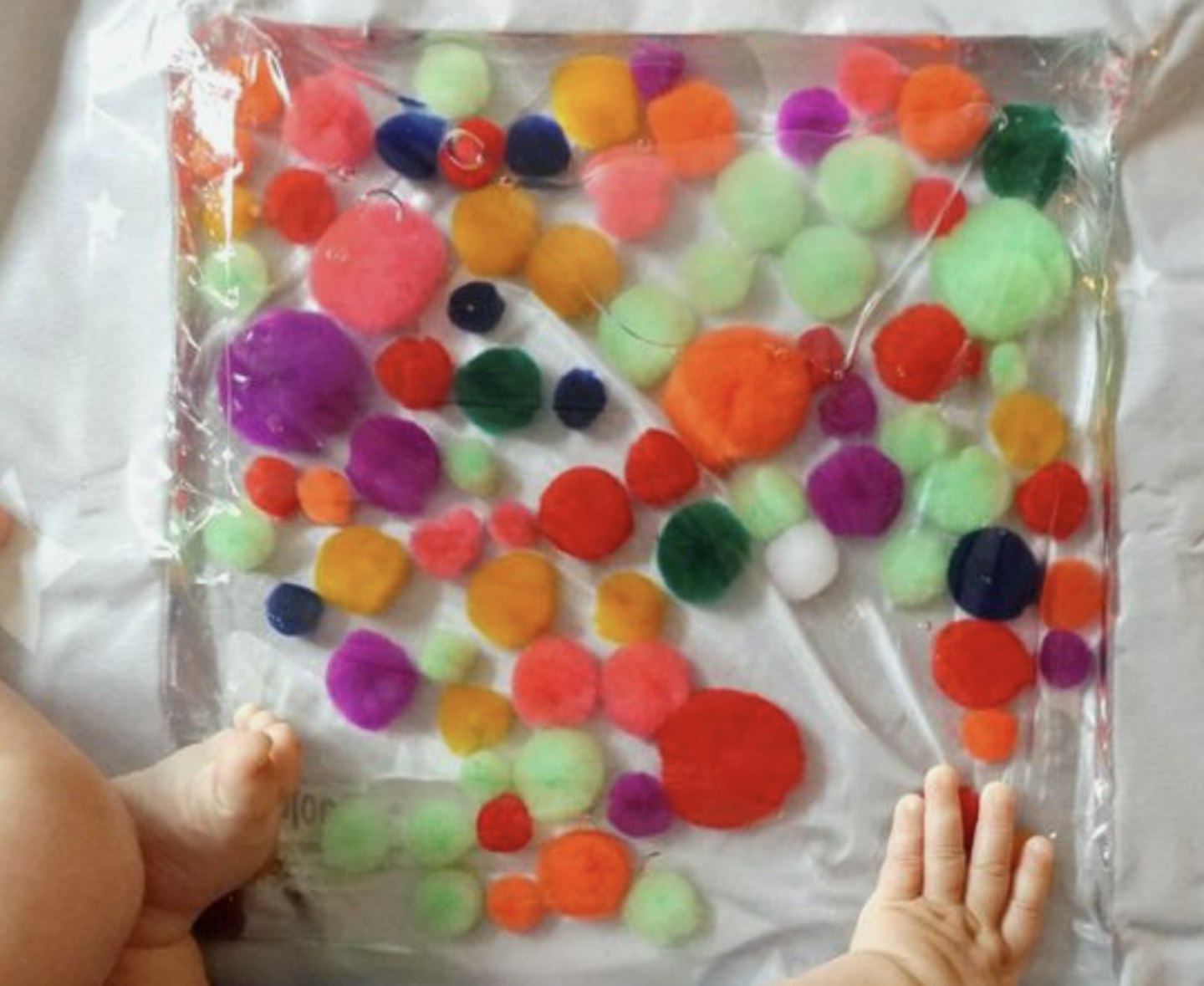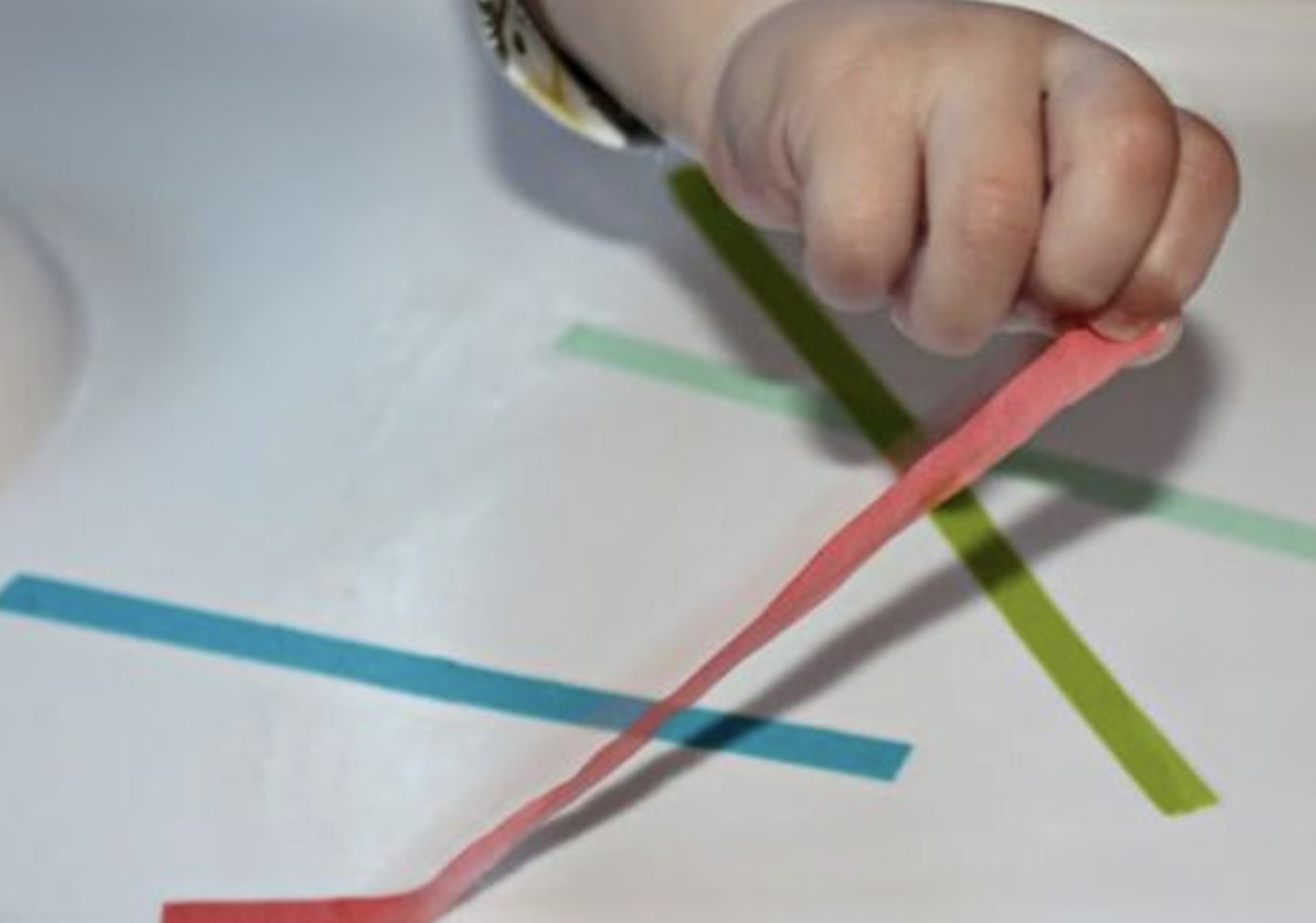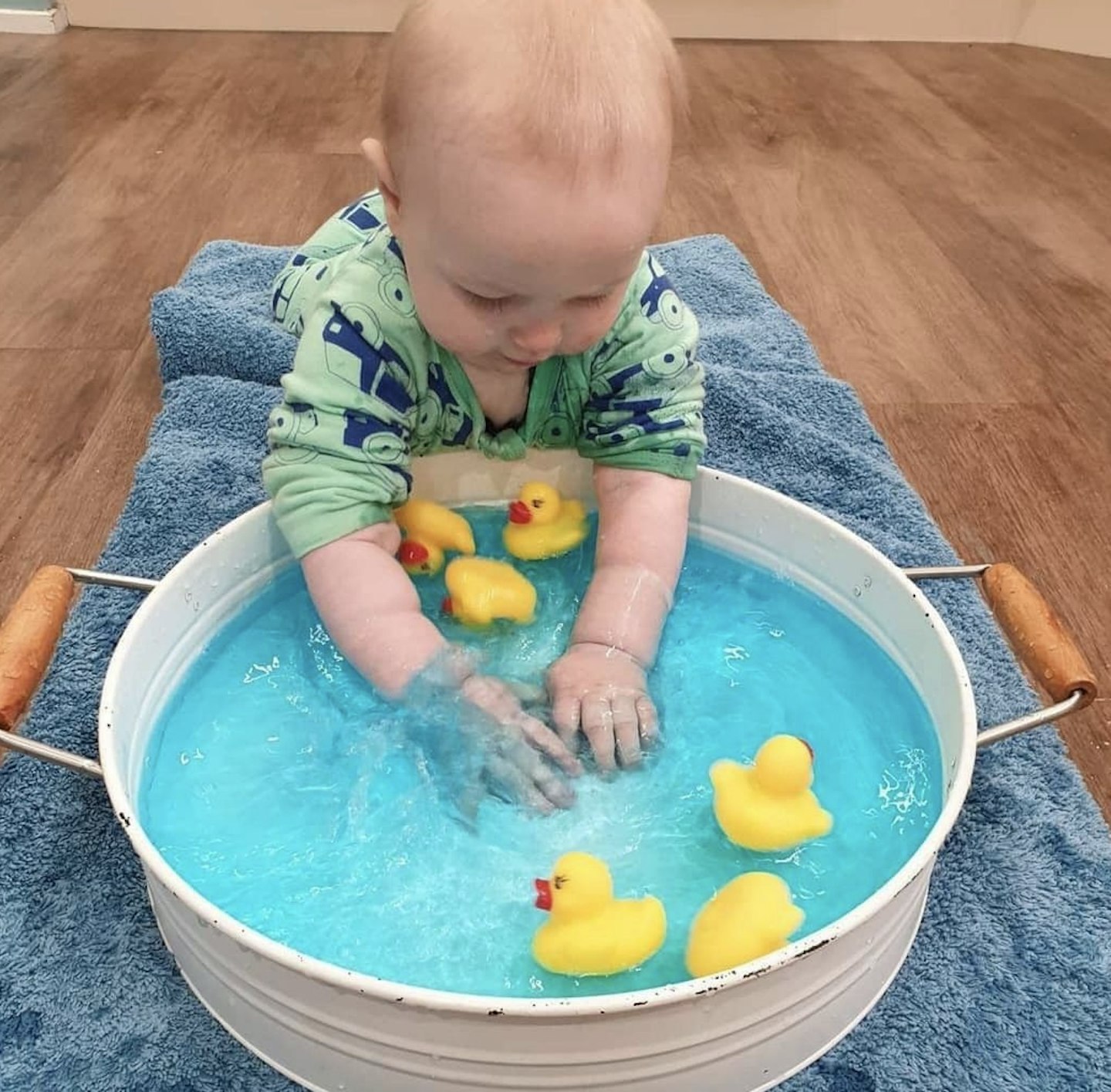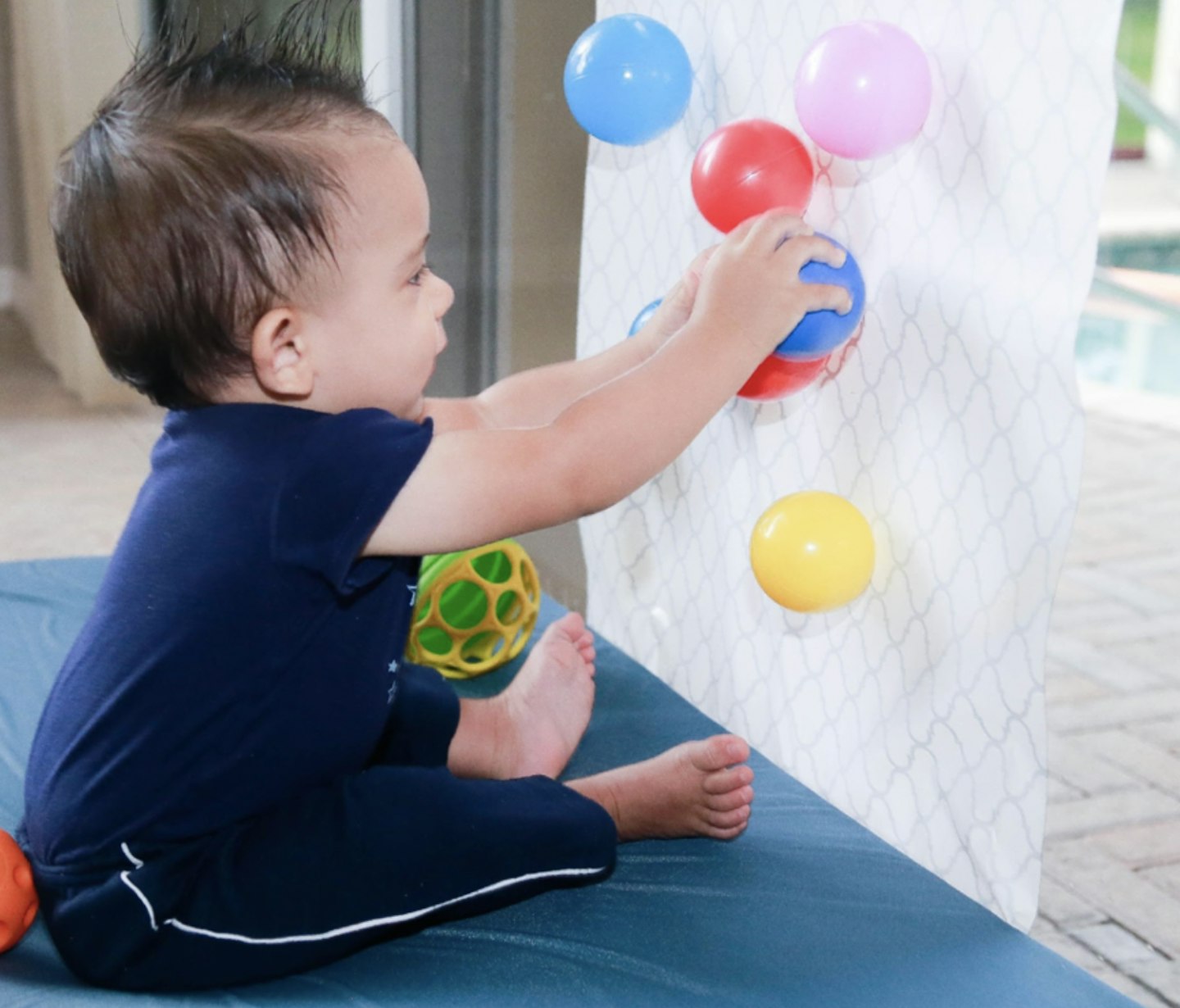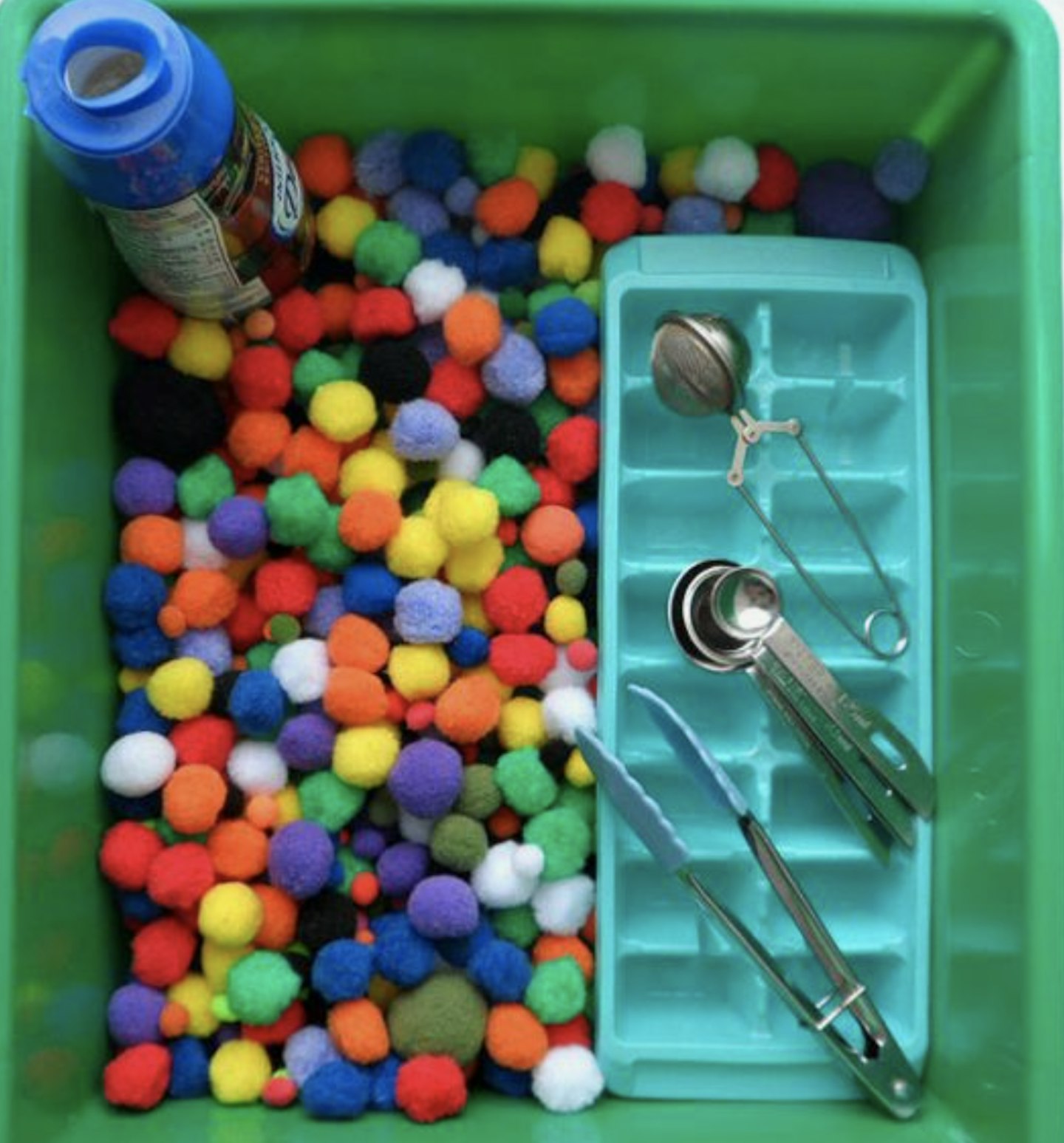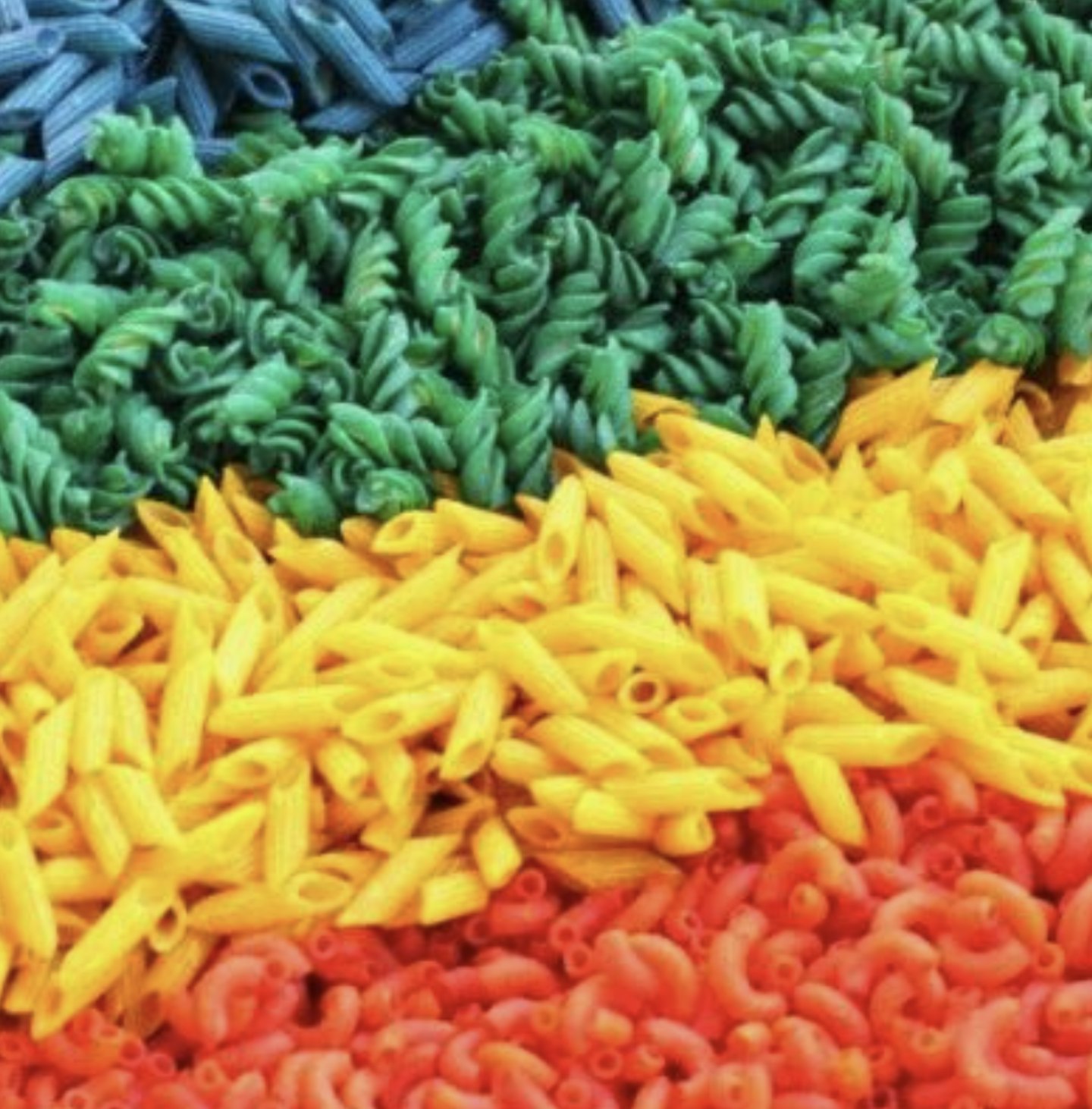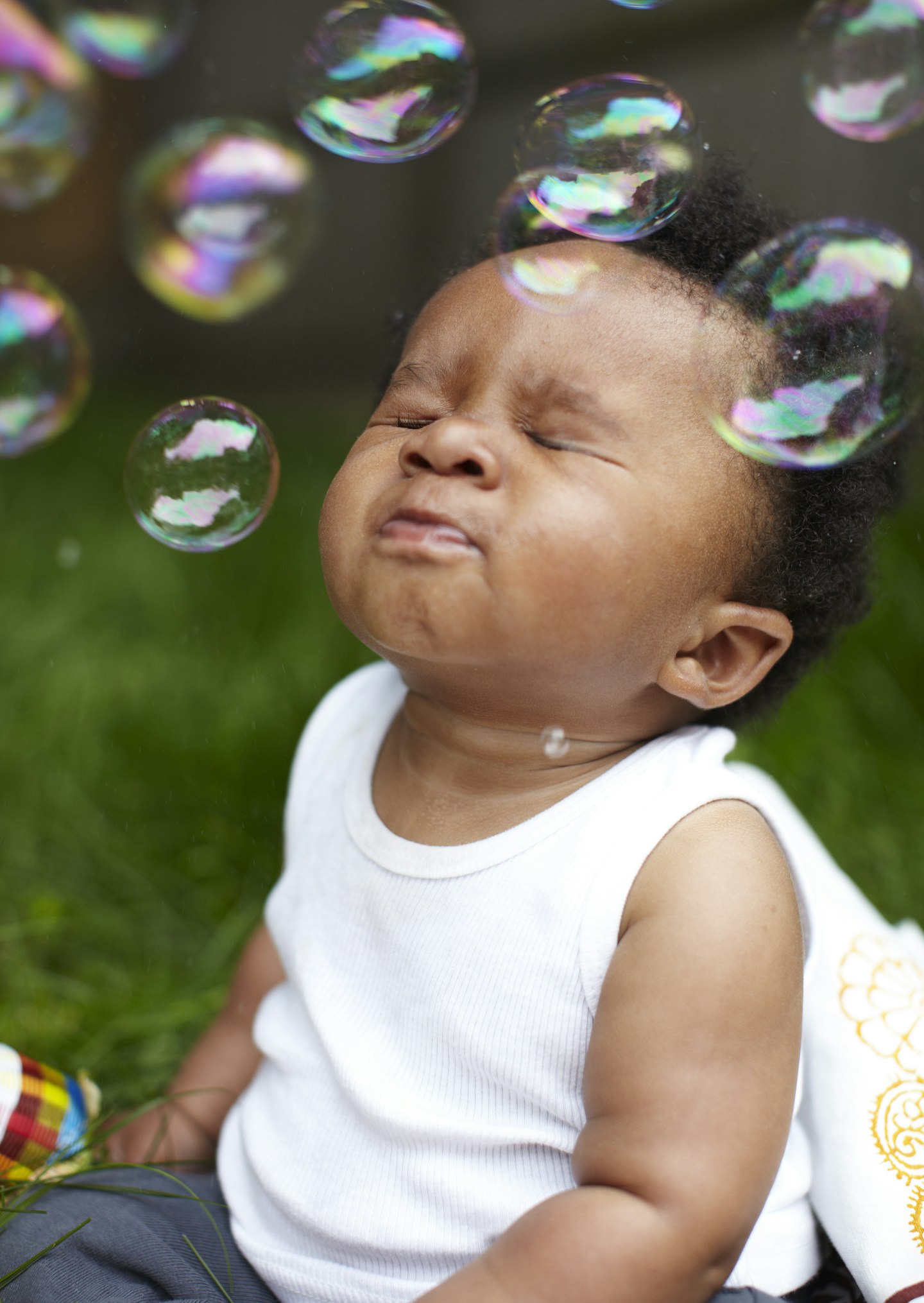Your baby is learning so much at this important stage of their lives, and as they come up to the 6 month mark, you'll notice they're becoming a lot more alert, with plenty of gurgling, babbling, laughing, smiling and moving their limbs a lot.
To encourage your baby to reach all of these important development milestones, play is very important. Not only will it improve your bond with your baby through interaction and connection, but they'll also love these new games and activities.
To give you a little inspiration, we've put together some simple, easy and free play ideas suitable for 6 month olds for you to have a go at at home.
Sensory bags
Sensory play is brilliant for encouraging your babies development. A sensory bag is a super easy activity to set up and is great to pop on their high chair tray. Simply get a sealable bag and fill with a little water, maybe some glitter for a liquid bag, some pom poms for a dry bag and even shaving cream for something different.
When you've finished sealing your bag, tape it down on the floor or on your high chair tray to keep it secure.
Peeling tape
It may sound very simple and boring, but peeling tape from surfaces is very stimulating for little ones. It's great for their fine motor skills as they explore how they can lift the tape using their nails and fingertips. We find masking tape works best for this kind of activity - simply stick it down onto a flat surface and let your baby lift it.
Catch a duck
Fill a large bucket up with water and some blue food colouring to make it brighter for your little one and pop their favourite rubber duckies in to float around for them to catch in their hands. Just be sure to pop a big towel down so your floor doesn't get too wet.
Stick on balls
Use a sheet of sticky back paper, either laid flat on the floor or stuck or hung up on a wall and grab some of your child's favourite coloured balls from their ball pit. Now ask them to stick the balls on the paper and take them back off however they please. This is a great activity for improving their hand eye coordination.
Ice cube tray activities
Developing their pincer grip is so important, and incorporating an ice cube tray into this activity is a great idea. Start by simply placing some pom poms into each cube and encouraging your baby to pick the pom poms out of each cube. Once they master the pom pom, you could even try it with grains of rice or sand.
Food games
Help them get to know their food with some sensory food play. Colour some fusilli pasta with bright colours and add some rice into a deep baking tray and let them play and run it between their fingers. This will help those fine motor skills and their pincer grip.
To dye the pasta, first decide how many colours you want and which colours. Separate your pasta into ziplock bags and add the different food colouring to each bag. Seal up the bags and shake them all, ensuring each piece of pasta has been coloured. When you're done, spread the pasta out on a baking tray with some baking paper underneath and leave out in the sun to dry.
Bubbles
What tot doesn't love bubbles? If the weather is nice enough (and not too windy), head outdoors and set up a picnic blanket and start blowing some bubbles around your tot. Seeing the bubbles, trying to touch them and interacting with you is great fun for your baby and your bond with them.
